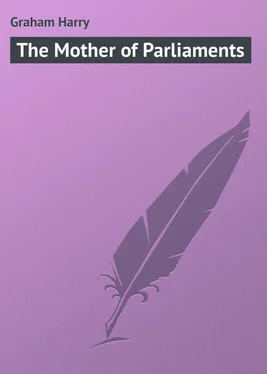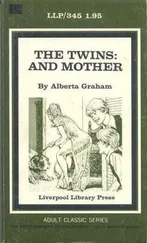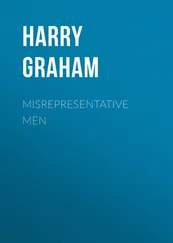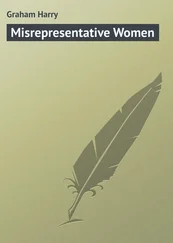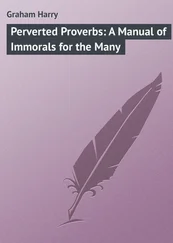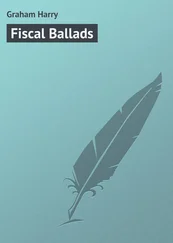Harry Graham - The Mother of Parliaments
Здесь есть возможность читать онлайн «Harry Graham - The Mother of Parliaments» — ознакомительный отрывок электронной книги совершенно бесплатно, а после прочтения отрывка купить полную версию. В некоторых случаях можно слушать аудио, скачать через торрент в формате fb2 и присутствует краткое содержание. Жанр: foreign_prose, на английском языке. Описание произведения, (предисловие) а так же отзывы посетителей доступны на портале библиотеки ЛибКат.
- Название:The Mother of Parliaments
- Автор:
- Жанр:
- Год:неизвестен
- ISBN:нет данных
- Рейтинг книги:5 / 5. Голосов: 1
-
Избранное:Добавить в избранное
- Отзывы:
-
Ваша оценка:
- 100
- 1
- 2
- 3
- 4
- 5
The Mother of Parliaments: краткое содержание, описание и аннотация
Предлагаем к чтению аннотацию, описание, краткое содержание или предисловие (зависит от того, что написал сам автор книги «The Mother of Parliaments»). Если вы не нашли необходимую информацию о книге — напишите в комментариях, мы постараемся отыскать её.
The Mother of Parliaments — читать онлайн ознакомительный отрывок
Ниже представлен текст книги, разбитый по страницам. Система сохранения места последней прочитанной страницы, позволяет с удобством читать онлайн бесплатно книгу «The Mother of Parliaments», без необходимости каждый раз заново искать на чём Вы остановились. Поставьте закладку, и сможете в любой момент перейти на страницу, на которой закончили чтение.
Интервал:
Закладка:
In the time of Charles II. a definite system of influencing members of Parliament by gifts of money was first framed, Lord Clifford, the Lord Treasurer, being allowed a sum of £10,000 for the purpose. The fact of holding an appointment in the pay of the Crown was in itself considered sufficient to bind a member to vote in accordance with the royal will. In 1685, when many members who were in the Government service threatened to vote against the Court, Middleton, the Secretary of State, bitterly reproached them with breach of faith. "Have you not a troop of horse in his Majesty's service?" he asked of a certain Captain Kendall. "Yes, my lord," was the reply, "but my brother died last night and left me £700 a year!" 9 9 Burnet's "History of His Own Times," vol. iii. p. 92 n.
Andrew Marvell has drawn a vivid but disagreeable picture of the Parliament which was summoned immediately after the Restoration. Half the members of the House of Commons he described as "court cullies" – the word "to cully" meaning apparently to befool or cheat – and in "A list of the Principal Labourers in the great Design of Popery and Arbitrary Law," gives a catalogue of the names of over two hundred members of Parliament who received presents from the Court at this time. 10 10 E.g. , "Sir Edward Turner, who for a secret service had lately a bribe of £4000, as in the Exchequer may be seen, and about £2000 before; and made Lord Chief Baron. "Sir Stephen Fox – once a link boy; then a singing boy at Salisbury; then a serving man; and permitting his wife to be common beyond sea, at the Restoration was made Paymaster of the Guards, where he has cheated £100,000, and is one of the Green Cloth." "Flagellum Parliamentarium," pp. 10 and 24.
The independence of Parliament was first asserted by that staunch old patriot Sir John Eliot, who, during the reign of Charles I., declared to the Commons that they "came not thither either to do what the King should command them, nor to abstain when he forbade them; they came to continue constant, and to maintain their privileges." 11 11 Forster's "Life of Sir John Eliot," vol. i. p. 529.
But in spite of such brave words, the power of the Crown was not finally subdued until the Revolution.
The downfall of the Monarchy at the time of the Commonwealth was followed by the temporary abolition of both Lords and Commons, the latter disappearing in company with Cromwell's famous "bauble." The Protector then proceeded to call together a body of "nominees," one hundred and forty in number, who represented the various counties in proportion to the amount of taxes each of these contributed. Of the seven nominees supplied by London, Praise God Barebones, a Fleet Street leather merchant, gave his name to the Parliament thus assembled. Cromwell also created a new House of Lords, numbering about sixty. 12 12 See "Journal of the Protectorate House of Lords, from the original MS. in the possession of Lady Tangye, January 20, 1657, to April 22, 1659." House of Lords MSS. vol. iv. new series, p. 503.
With the Restoration the Crown resumed much of its former power. In 1682 the publisher of a reprint of Nathaniel Bacon's "Historical Discourse," which declared that Kings could "do nothing as Kings but that of Right they ought to do," and that though they might be "Chief Commanders, yet they are not Chief Rulers," was outlawed for these treasonable statements. It was not, indeed, until the Revolution of 1688 that the royal influence was curtailed, so small a revenue being allowed to William III. that the ordinary expenses of government could not be defrayed without assembling Parliament.
The attendance of the King in Parliament had been usual in early days, but the Commons always deprecated the presence of the Sovereign in their midst. Charles I. affords the only example of a monarch attending a debate in the Lower House, when on that famous 4th of January, 1642, he marched from Whitehall to Westminster, with the intention of arresting the five leading members, Hampden, Pym, Holles, Haselrig and Strode, authors of the Grand Remonstrance, whom he had caused to be impeached on the preceding afternoon. The House had been put upon its guard by Lady Carlisle, and on the eventful day, a French officer, Hercule Langres, made his way to Westminster and warned Pym and his colleagues of the approach of the royal troops. When therefore the King arrived he found that his birds had already flown, and was compelled to retire empty-handed, amid cries of "Privilege!" from members of the outraged assembly.
In those times the desire of the Commons was to keep the Crown as ignorant as possible on the subject of their doings. The habit of providing the King with a daily account of Parliamentary proceedings did not come into fashion until the end of the eighteenth century, when the House was no longer afraid of the royal power.
The Lords have never objected as strongly as the Commons to the royal presence. Charles II. often found the time hang heavy on his hands, and would stroll down to the Upper House, "as a pleasant diversion." He began by sitting quietly on the Throne, listening to the debates. Later on he took to standing by the fireplace of the Lords, where he was soon surrounded by many persons anxious to gain the royal ear, and thus "broke all the decency of that House." 13 13 Burnet's "History of His Own Time," vol. i. p. 184.
Since the accession of Queen Anne, however, no Sovereign has been present in Parliament, save at the opening or closing ceremonies. But long after kings had ceased to attend Parliament in person they continued to attempt the control of its proceedings. George III. finally brought matters to a head by his perpetual interference with the affairs of the Commons, and caused the passing of that momentous resolution, moved by Dunning on April 6, 1780, "that the influence of the Crown has increased, is increasing, and ought to be diminished," which disturbed if it could not vex Dr. Johnson. 14 14 "Public affairs vex no man," said Dr. Johnson, when asked whether he were not annoyed by this vote. "I have never slept an hour less, nor eat an ounce less meat. I would have knocked the factious dogs on the head, to be sure; but I was not vexed ."
Between 1688 and 1832 political life in England was excessively corrupt. Parliament had grown to a certain extent independent of the Crown, but had not yet learnt to depend upon public opinion. It was consequently a difficult body to deal with, and had to be managed by a system of open bribery which first showed itself most conspicuously in the shape of retaining fees paid to Scottish members. 15 15 Boswell's "Life of Johnson," p. 731. (Cromwell had already stigmatized Scotland as corrupt. He had been told, he said, that it was a poor country inhabited by honest people, but found that the country was not poor and the people anything but honest.)
In 1690 the practice of regularly bribing members of the House of Commons was undertaken by the Speaker, Sir John Trevor, on behalf of the Tory party. In Queen Anne's reign a statesman paid thousands of pounds for the privilege of being made Secretary of State, and a few years later we find Sir Robert Walpole assuring a brother of Lord Gower that he knew the price of every man but three in the House of Lords. 16 16 Dr. King's "Anecdotes of His Own Time," p. 44.
Bribery no longer emanated direct from the Crown, but was practised vicariously by the King through his ministers. They might object to the system, but, as King William once said to Bishop Burnet, they had to do with "a set of men who must be managed in this vile way or not at all." 17 17 "History of His Own Time," vol. ii. p. 76.
Macaulay likens the Parliament of that time to a pump which, though it may appear dry, will, if a little water is poured into it, produce a great flow. So, he says, £10,000 given in bribes to Parliament would often produce a million in supplies. 18 18 "History," vol. iii. p. 545.
Even Pelham, a man of unblemished reputation in private life, saw the absolute necessity of distributing bribes right and left. And in 1782 we find Lord North writing to George III. to remind him that "the last general election cost near £50,000 to the Crown, beyond which expense there was a pension of £1000 a year to Lord Montacute and £500 a year to Mr. Selwyn for their interest at Midhurst and Luggershall." 19 19 "Correspondence of George III. and Lord North," vol. ii. p. 425.
Интервал:
Закладка:
Похожие книги на «The Mother of Parliaments»
Представляем Вашему вниманию похожие книги на «The Mother of Parliaments» списком для выбора. Мы отобрали схожую по названию и смыслу литературу в надежде предоставить читателям больше вариантов отыскать новые, интересные, ещё непрочитанные произведения.
Обсуждение, отзывы о книге «The Mother of Parliaments» и просто собственные мнения читателей. Оставьте ваши комментарии, напишите, что Вы думаете о произведении, его смысле или главных героях. Укажите что конкретно понравилось, а что нет, и почему Вы так считаете.
